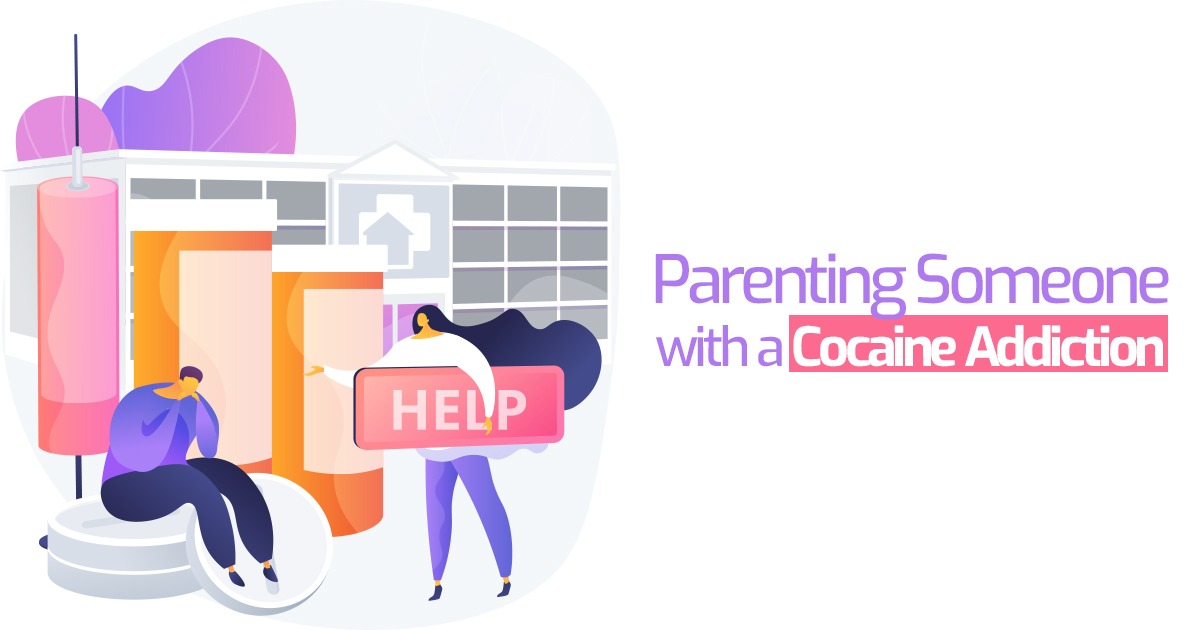
Addiction in a child, tween, or adolescent can be devastating for parents and the family as a whole. Parents need to understand how fighting within the family unit is not conducive to effectively addressing their child’s addiction. Parents must treat addiction as a disease that affects the brain and understand how it affects the family as a whole. Luckily, with more knowledge and noticing the signs of drug addiction, namely the signs of cocaine addiction, parents can mitigate the child’s tendency to try drugs and risk factors by recognizing their own examples in parenting.
One key element to examine is the role of the enabler. The family unit can sometimes contribute to the drug use of their youth by focusing on them and their addiction to the exclusion of developing healthier family dynamics. Sometimes, the parents are unaware that their attention to the drug and their child can actually conform that child to more maladaptive behavior patterns that perpetuate the drug use. Family intervention with a specialist may be the key help that restores the child and reorganizes the parental role as it affects addiction in their loved one.
Cocaine addiction in teens is a serious problem in many ways. Because this population is still young, cocaine and crack can have a serious effect on their developing brain and body. If cocaine and crack are used in the teen years, they have more likelihood to continue into the young adult years, 18-25 years of age. While it is known that people in this age group are prone to experimentation, there is a need to notice if this is not a severe drug addiction-forming.
Commonly, underage drinking is a prevalent concern amongst young people, and so is the rarer occurrence of cocaine addiction amongst teens. First, the prevalence of the problem of cocaine may be rare because cocaine may be harder to access and afford. Still, there are noticeable signs of cocaine addiction and symptoms that every parent should know if they suspect their child is engaged in drug abuse of any severity.
Signs of Cocaine Addiction
There are always noticeable behavioral changes and abnormalities that may be easy to see but hard to diagnose. Some symptoms of the drug use and cocaine effects to watch for are:
- Dilated pupils
- Erratic and hyper behavior
- Runny nose
- Weight loss
- Risky activities
- Nosebleeds
- White powder residue
- Talkative more than usual
- Drug paraphernalia
These are just a few of the signs as well as: consequences to school performance, friendships, associations with the “wrong” crowd, truancy, hostile behavior, and illness.
Parents must accept that addiction is not the problem of the youngster alone. Cocaine addiction or any sort of drug abuse is primarily a sign of dysfunction in the family, or is even concurrent with another family members’ use and genetic predisposition.

How Long Does Cocaine Stay in Your System?
Cocaine can last in the system depending on how often you imbibe it. Snorting cocaine can leave a high effect between 5 and 30 minutes and compel the user to repeat use based on the severity of the crash period. Cocaine can last longer in the system and show up in drug tests a few days afterward.
Cocaine effects are dire and affect the developing physical body in several serious ways. Frequent and ongoing use of cocaine can lead to heart attack, stroke, seizures, liver failure, heart failure, and severe impairment in cognitive function.
How Does Cocaine Affect a Young Person?
Cocaine is a stimulant for the central nervous system that increases energy and awakeness. Cocaine floods the brain with dopamine and leads to a boost in confidence and short-lived pleasure. About 14% of youth aged 12 or older have used cocaine in the United States at some point. Cocaine effects can significantly alter the brain’s chemical makeup and is extremely challenging to quit. 72% of cocaine use is in the form of smoking a rock, known as crack cocaine.
Cocaine Abuse Symptoms
Cocaine symptoms look like a person has changed, perhaps becoming more talkative, excitable, with fewer inhibitions and increased confidence, lower appetite for food, decreased sleep. The high is followed by a crash that affects eating and sleeping patterns as well. The behavioral effects can be long lasting after initial use and can be noticed as:
- Hostility
- Anger
- Irritability
- Violent outbursts
- Paranoia
- Anxiety
- Hallucination
Parenting Someone with a Drug Abuse Problem
Parents can improve the family environment and improve their parenting skills in some ways. Start by asking your teen about their opinions on drug use and find out if they are truly aware of the consequences of drug abuse like cocaine addiction. We can discuss cocaine addiction as leading to a loss of potential and joy related to achievement in school, milestones in life, and drastic sabotage into adulthood.
Give your child a natural loving confidence as a way to buffer them from being affected by peer pressures. Know their activities, establish firm rules, avoid scare tactics, and know who their friends are. Increasing your support of them can be felt and truly encouraging in preventing them from becoming addicted to anything!
Try talking to your teens about the consequences of using drugs and teaching them how to make healthier choices by avoiding drugs altogether. Know that your child may be experiencing peer pressure issues amongst their social group, insecurities and a lack of confidence, and a desire for social acceptance. Many teenagers may not be paying attention to the risks and consequences and need more parental monitoring and close attention.
If you’re a parent looking to help prevent your child from falling back into drug addiction, let Anchored Tides Recovery help by calling 866-600-7709.































